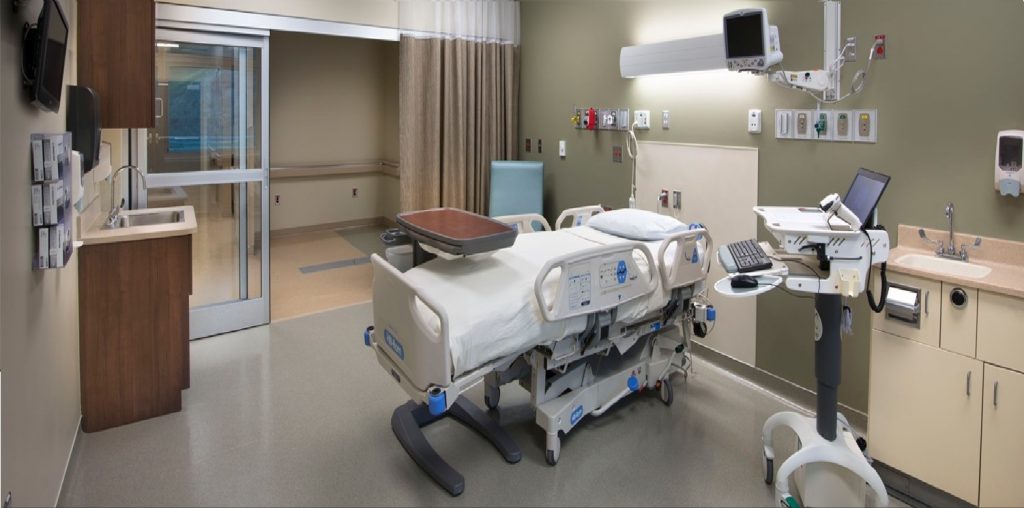
Your Guide to a Home ICU: Setup, Equipment, and Safety
Establishing an ICU at home is a strategic step that requires thorough planning and consideration of many factors. This manual will walk you through the basic procedures for ICU equipment, the setup process, and the safety measures to be followed for a comfortable and secure home environment for critical care.
ICU Equipment: The heart of a home care
The mainstay of the ICU is critical care equipment used to monitor and support vital functions. Examples include ventilators, oxygen concentrators, para monitors, cardiac monitors, Bipap machines, and many more.
Each piece of equipment is key to ensuring that the aircraft is stable and that any medical emergencies are dealt with quickly.
For instance, ventilators are fundamental in treating patients with respiratory problems. These appliances help breathing by providing controlled ventilation of oxygen to the lungs. Oxygen concentrators extracts oxygen from the air, thus offering a stable supply of supplemental oxygen for those in need.
Both para and cardiac monitors are crucial devices that help continuously monitor vital signs. These tools monitor heart rate, blood pressure, and other critical vital signs to identify deviations from the normal range and act swiftly upon them.
Additionally, Bipap machines, also known as Bilevel Positive Airway Pressure machines, are helpful for people with breathing issues; they deliver different levels of air pressure to ease inhaling and exhaling.
Setting Up Your Home ICU: A Manual Step-by-Step
Preparing a home ICU requires a thorough consideration of an individual patient’s needs. First, we must allow a room for the ICU in the house. This room should be easy to navigate, well-ventilated, and hazard-free.
In a home ICU setup in Delhi, where space may be a constraint, we can devise innovative solutions to make the best use of available space. Space-saving equipment, either wall-mounted or compact, may be considered to maximize the use of limited space.
However, proper placement of the equipment within the designated space is paramount. It is to avoid hindering caregivers and medical personnel. Keep your essential items within your reach and secure all wires and tubes to ensure safety and prevent complications.
Work in collaboration with healthcare professionals to ascertain the patient’s individualized needs and get help on the best placement for the equipment. Keep in mind the available resources and expertise of home healthcare providers to ensure Delhi’s home ICU setup is as comprehensive as possible.
24-Hour Attendant Staff and Nursing Services
Not only the vital ICU equipment but also the 24-hour attendant staff and nursing services are necessary for full-fledged home care. Nursing services are at the core of medication administration, vital signs monitoring, and advanced care delivery.
Moreover, the presence of the attendant staff 24/7 guarantees that immediate help is available when needed. This can be especially encouraging for the patient and their family as they can be sure that there is always someone professional to talk to on the other end of the line.
Safety First: Providing a safe and secure ICU at home
Arranging an ICU at home is essential for safety. Daily practice, occasional upkeep, and assessment of the hardware are the critical variables to guarantee the appropriate working of the gear with practically no glitches.
Furthermore, to ensure the equipment’s reliability, follow the manufacturer’s instructions for cleaning, servicing, and calibration.
Educate caregivers and family members on the proper use of the gadget, including how to work it, crisis systems, and investigating steps. Clear directions and signs ought to be given to everybody so that they can undoubtedly grasp the use of the gadget and can act quickly to a warning or caution.
Provide well-being measures in the home, such as non-slip flooring, secure handrails, and sufficient lighting. Ensure that there are no impediments on the way so nobody gets injured, and put snatch bars where there is high traffic or where additional help might be required.
However, emergency readiness plans should depend on regular surveys and updates, like departure strategies and clinical contacts. Having reinforcement power sources like a generator or battery stockpiling is an unquestionable requirement if a blackout happens.
Conclusion
Finally, ICU setup at home requires consideration gear, cautious preparation, and a devotion to patient security. Moreover, there should be information on every gear’s significance, the right arrangement, and prioritizing well-being measures. Hence, you can establish a warm and comfortable home climate for your relatives.
Liaise with medical services professionals to tweak the home ICU setup for the patient’s particular requirements. Using the information on home medical services suppliers in Delhi and sound judgment, you should rest assured that individuals needing essential consideration will be protected.
For top-quality administrations, consider contacting YNB Healthcare Pvt. Ltd. It is strategically placed in the core of Delhi, giving merciful and proficient consideration. Setting patients at the very front, they offer fitted answers to meet individual prerequisites.
The group meets and outperforms client assumptions by adjusting to developing necessities. Notwithstanding Home ICU services, YNB Medical Care likewise offers ICU setup at home, home setup, critical care equipment, ice equipment, etc.
Booking a preferred home ICU setup is a breeze with YNB Medical services. Essentially, send an email or finish up the accessible structure. To get help, make sure to send a WhatsApp message.


 Physiotherapy
Physiotherapy Elder Care
Elder Care Medical Equipment
Medical Equipment Doctor Consultation
Doctor Consultation Nursing
Nursing Trained Attendants
Trained Attendants Lab Tests
Lab Tests Mother & Baby Care
Mother & Baby Care Critical Care
Critical Care Ambulance Service
Ambulance Service Dead Body Freezer
Dead Body Freezer